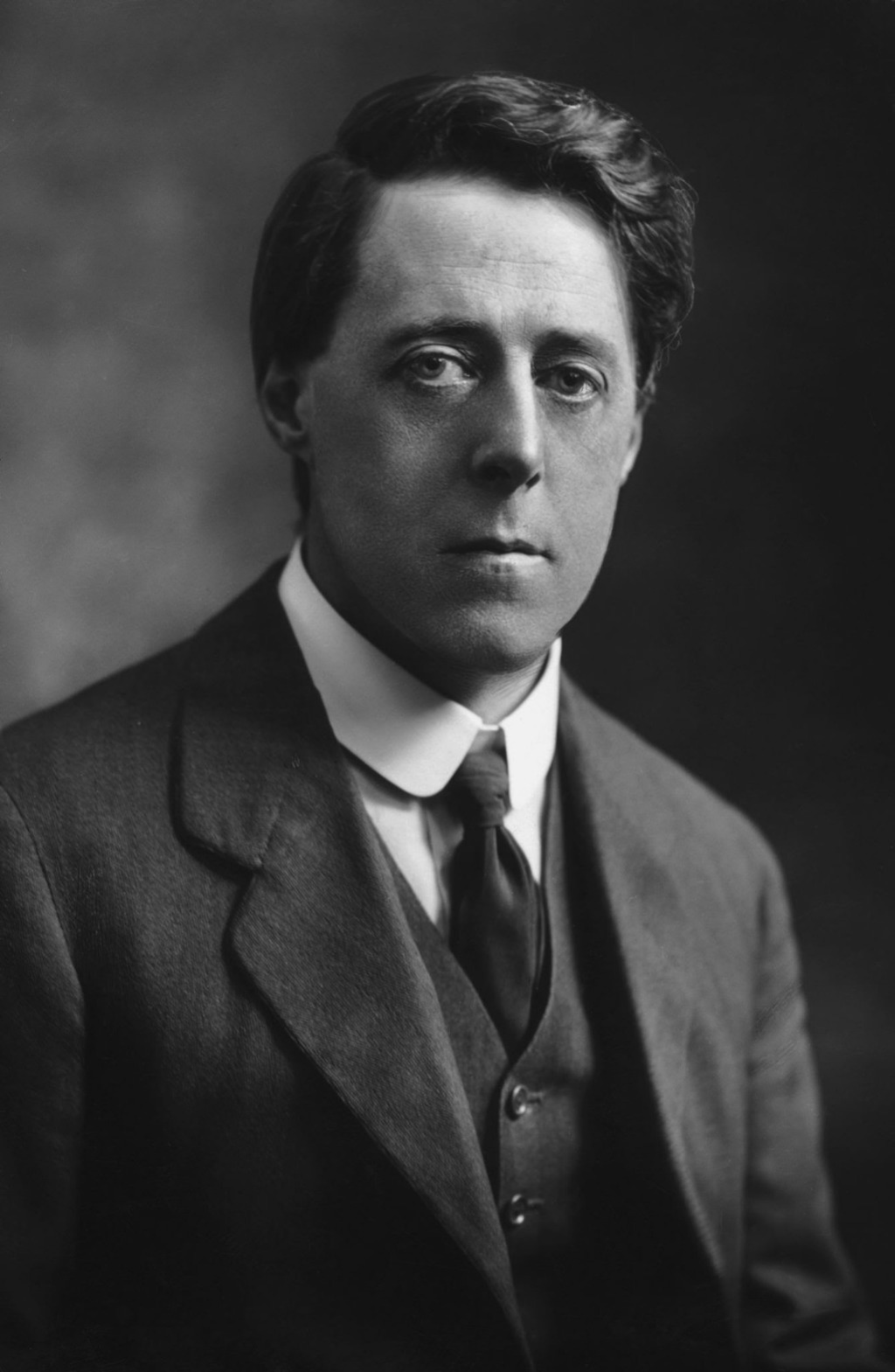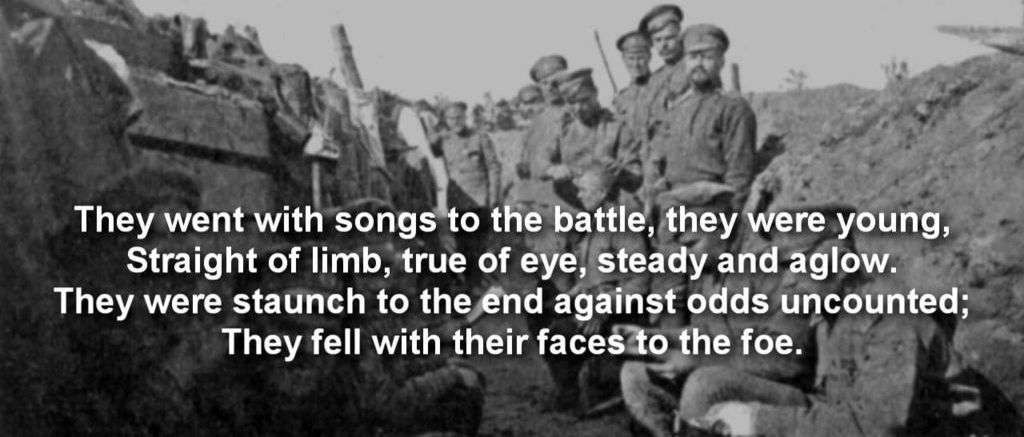Robert Laurence Binyon (1869-1943): For the Fallen
Posted on 20th February 2021
An employee of the British Museum, Laurence Binyon composed ‘For the Fallen’ atop the cliffs of North Cornwall near the town of Polzeath in September 1914, when the full carnage of the Western Front was yet to be realised.
Since 1921, its Fourth Verse has been recited at Remembrance Day Services throughout Britain and her Commonwealth usually before or after the playing of the Last Post and has over time become the sad lament for lost youth; for those who gave their lives in the service of their country in a noble cause.
Too old for military service in 1914, Binyon, his own experience of war being restricted to the blood spattered corridors of institutions for the injured and maimed where he volunteered as an orderly is by no means the most famous of the War Poets was but is considered one of merit nonetheless and a number of his poems including ‘For the Fallen’ were included in the last orchestral work of the composer Edward Elgar.
He died on 10 March 1943, during yet another and even more calamitous life and death struggle.

For the Fallen
With proud thanksgiving, a mother for her children,
England mourns for her dead across the sea.
Flesh of her flesh they were, spirit of her spirit,
Fallen in the cause of the free.
Solemn the drums thrill; Death august and royal
Sings sorrow up into immortal spheres,
There is music in the midst of desolation
And a glory that shines upon our tears.
They went with songs to the battle, they were young,
Straight of limb, true of eye, steady and aglow.
They were staunch to the end against odds uncounted;
They fell with their faces to the foe.
They shall grow not old, as we that are left grow old:
Age shall not weary them, nor the years condemn.
At the going down of the sun and in the morning
We will remember them.
They mingle not with their laughing comrades again;
They sit no more at familiar tables of home;
They have no lot in our labour of the day-time;
They sleep beyond England’s foam.
But where our desires are and our hopes profound,
Felt as a well-spring that is hidden from sight,
To the innermost heart of their own land they are known
As the stars are known to the Night;
As the stars that shall be bright when we are dust,
Moving in marches upon the heavenly plain;
As the stars that are starry in the time of our darkness,
To the end, to the end, they remain.
.
Tagged as: Poetry
Share this post:





